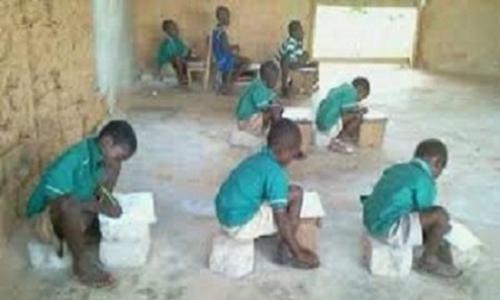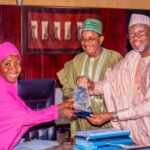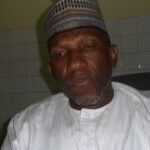The Director-General of Bureau of Public Service Reforms (BPSR), Mr Dasuki Ibrahim Arabi, has said that the Federal Government is sensitive and responsive to the challenges affecting Nigerians in the areas of health, water and education in the country.
He said this on Monday in Abuja during a report launch organised by Socio-Economic Rights and Accountability Project (SERAP).
- Questions over Israel-trained Plateau’s ‘intelligence squad’
- Miyetti Allah demands creation of livestock ministry
The report titled: “The ignored pandemic: how corruption in the health, education and water sectors is plunging poor Nigerians”, analysed alleged misuse of public funds in health, education and water sectors during COVID-19 pandemic in the country.
Arabi said that the government has in the last few years increased its budgetary allocation to these critical sectors due to their impacts on these on citizens and in nation building.
He said, “Ever than before, government is mindful of the importance of the education, water and health sectors, as catalyst for rapid transformation. This is why President Muhammadu Buhari’s led administration places so much emphasis in the development of the sectors, as it is tandem with the objectives of Economic Recovery Growth Plan (ERGP), which focus on investing in the Nigeria people.
“The Present administration has been sensitive and responsive to issues raised in the report, as the sectors are considered stimulus to economic growth and development. Consequently, President Muhammadu Buhari-led administration has introduced various interventions that seek to address the problems facing the sectors.
“We are glad to state that part of the interventions of government, is the boost in the budgetary allocation to the health, water and education sectors. The Federal Government in 2021 appropriation increased the shares of Education Sector by 65 percent, while the water and health sectors had an allocation of N153bn and N132bn respectively.”
He also explained that concerned with lack of effective stakeholders’ coordination and slow implementation of the Basic Health Care Provision Fund (BHCPF), BPSR, in partnership with Foreign Common Wealth Development Office (FCDO)-PERL, undertook an analysis to uncover the delay in the implementation process and proffered a way forward, with a proposed roundtable stakeholders meeting scheduled for September.
He said that as rightly observed in the SERAP report, a situation where 54 percent of respondent attest to people who connect to public water source illegally without payments and 93 percent representing people who pay direct cash for connection to public water source, is indicative of the rot and leakages prevalent in the system.
He said, “This cannot be handled alone by government but calls for citizen’s attitudinal change and orientation. Fighting corruption should be pervasive; citizens should be able to pay for their utility bills and taxes.”

 Join Daily Trust WhatsApp Community For Quick Access To News and Happenings Around You.
Join Daily Trust WhatsApp Community For Quick Access To News and Happenings Around You.


